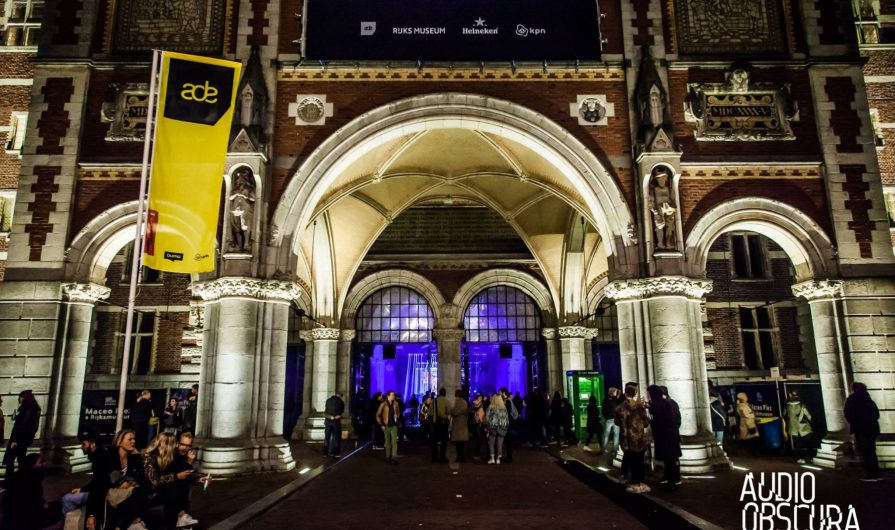I left for my year abroad in Amsterdam considering the clichéd sentiments and warnings that go hand in hand with the shadier sides of the city’s double-edged culture. Any prior trips to the so-called ‘City of Sin’ had not inspired much confidence in me in terms of its nightlife. However, after spending close to 10 months living here in the Dutch capital, any ignorance in this regard has now diminished and I am well aware of Amsterdam’s status as one of Europe’s elite when it comes to electronic music.
It is well documented that Amsterdam has undergone something of a renaissance in its nightlife in recent years, and discovering this helped put my mind at ease after finding out my year abroad destination. Much like Berlin, it has become an attractive home for many young creatives and artists, with a vast number of under 30s now expatriating to the city because of its rich and diverse culture and strong international community. In a recent study featured in The Independent, it even surpassed the techno capital by taking the top spot as Europe’s most attractive city for young millennials. With this, there is a definite sense that this creative exuberance permeates throughout the city and feeds right into its thriving club scene.
A huge part of Amsterdam’s recent success is down to the introduction of a night mayor, whose role has helped the city become a trailblazer in how to sustain a successful club scene. In his 6-year tenure, former night mayor Mirik Miran oversaw the crucial introduction of 24 hour licenses for Amsterdam’s clubs, only seen in the U.K. at Houghton Festival. In a recent Resident Advisor interview, newly elected night mayor Shamiro van der Geld spoke on how the 24-hour license has enabled Amsterdam’s creative spaces to flourish, also stressing the importance of diversity in the club scene, pronouncing it as ‘the new form of quality’. Heavyweight cities such as London, Paris and New York are now trying to emulate Amsterdam’s winning formula by establishing their own night mayors, serving as an important reminder of Amsterdam’s spectacular rise to join the dance music elite.
The multi-purpose cultural institution De School is at the heart of the city’s night-time resurgence, symbolising its progressive approach to club culture. After the closing of legendary and seemingly indispensable clubs Trouw and Studio 80 in 2016, De School’s opening the same year injected a fresh creative energy and dynamism into Amsterdam’s nightlife. An industrial former high-school, De School goes beyond the traditional remits of a club by serving as a community and art space, a gym and an acclaimed restaurant, exemplifying a Berlin-like makeshift approach that is evident in much of Amsterdam’s arts culture.

(De School)
Any versatility in this regard, however, does not tarnish De School’s status as the city’s undeniable home for techno. The club’s most popular and inimitable night, Het Weekend, runs for 30 straight hours and has been curated by the likes of local DJ Antal and his label Rush Hour, as well as Call Super, who brought the likes of Objekt and Leeds’s own Ben UFO to the club’s hallowed booth. Despite an ostentatious and strict door policy, once inside and walking through the school corridors there is a real sense of escapism and comfortability to De School. Both are important characteristics for any club, especially when coupled with a responsible and appreciative dance floor, and help to to give the overwhelming sense that you truly belong there.
There is also much to be said for Amsterdam’s festivals, beyond the immensely popular and omnipresent Dekmantel. Every October, the self-professed world’s biggest club festival, Amsterdam Dance Event, takes over the city for 5 days hosting hundreds of parties and conferences in almost all its major music venues. Highlights from the past year include a 62-hour non-stop party at De School, a rare performance from Underworld in the underpass of the striking Rijksmuseum and an Awakenings Festival 7-day take over in former gasworks complex, Gashouder. In 2016, ADE even marked the opening of one of the city’s most dynamic clubs, Shelter, which through its focus on sound quality and design now rivals De School as one of Amsterdam’s brightest and best for both house and techno.
 (Shelter)
(Shelter)
It is equally important to mention the more intimate Lente Kabinet (The Spring Cabinet) Festival, now in it’s 7th year. Seen very much as the little sister to Dekmantel, Lente Kabinet has established itself as the darling of Europe’s biggest festival circuit through its serene location, that of Twiske Park on the edges of the city, beautiful decor and emphasis on local music and art. This year, local party promoters Red Light Radio and Subbacultcha played a vital role in the proceedings, with the former hosting its own stage that featured DMX Krew, DJ Assault and Red Light Radio co-founder Orpheu the Wizard. However, the festival still brings with it a similar calibre of artists to its better established creator, Dekmantel; Motor City Drum Ensemble, Ben UFO and Kamaal Williams to name but a few. As it continues to grow, it is this unique formula that has helped render it the quintessential ‘Amsterdam’ festival, and one that is simply unmissable.
 (Lente Kabinet)
(Lente Kabinet)
For a city often most commonly associated with ‘pot and prostitutes’, there is a lot to be said for Amsterdam’s flourishing clubs and festivals. Whilst on a year abroad there is an obvious tendency to miss life in the student-centric Leeds bubble, Amsterdam is definitely a city with more to offer. Those looking to improve nightlife in the U.K could do a lot worse than look to it as a model example for how to sustain and develop a city’s club scene.
James Dewar
(Main image: Audio Obscura)

